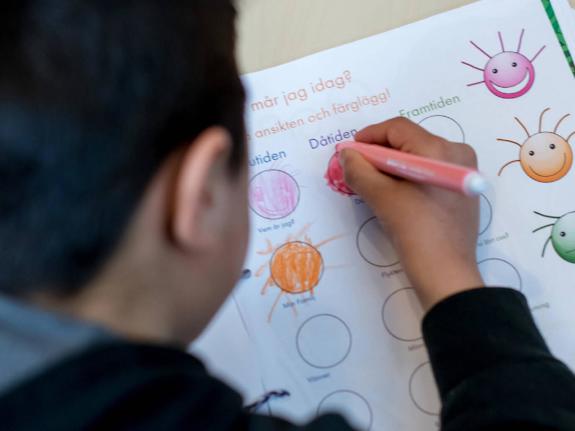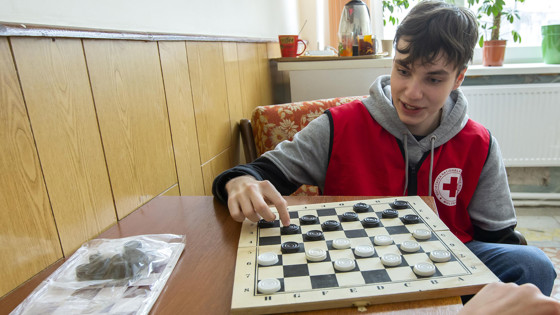
Give refugee children a sustainable school start with routines, security and play
Give refugee children a sustainable school start with routines, security and play
Our psychotherapist shares advice on how children with experiences of migration can get a good start in school in Sweden.
Five ways to contribute to a good start in school
-
Explain how the school system in Sweden works.
-
Plan fun activities with the children after school.
-
Help out with homework (or direct them to Red Cross tutoring services).
-
Supporting the children can provide av much-needed relief for the parents.
-
Get involved in the Red Cross’s initiatives, such as tutoring programs.
Routines security and play – advice from our psychotherapist
Experiences of war and being forced to flee can turn a person’s life upside down. A new country. A new language. Worry about their homeland. For children, this can be remarkably challenging.
– Children do not have the same ability as adults to understand what is happening. Seeing their home or school destructed can make them believe that they will never have a place to live or go to school again, says Hillevi Torell, psychotherapist at the Red Cross.
How to give refugee children a sustainable school start
School can be a positive experience for refugee children. It brings routines and structure into their lives, providing stability in an otherwise uncertain situation. However, starting at a new school with new classmates in a foreign country is a major transition.
– You can be a great help when it’s time for school to start. Explain how the school system works, take the children to leisure activities after school, arrange outside day trips and invite them to play. Another good advice is to do homework together.
Hillevi emphasizes the importance of caring for people who live with uncertainty about the future and concerns for loved ones back home. Helping each other out with the children can also give relief to the parents and a moment of rest.
– It’s great when adults participate in organizing play. Children who have experienced hardship need to play, laugh, and for some moments forget what has happened. It creates a sense of normality.
At the red cross treatment center for war and torture victims, Hillevi meets many children with difficult experiences.
– Some children react by becoming angry and acting out. Others become quiet and withdrawn. For some it might seem like they are unaffected, but they still are.
”Children who have experienced hardship need to play, laugh, and for some moments forget what has happened. It creates a sense of normality”
"We all carry a story - take the time to listen"
Hillevi highlights two key actions, being present and to listen.
– We all carry a story, and many of us want to talk about what we have been through. Showing interest and openness to what children have experienced is an important approach. We can create space and take the time to listen.
– Children may struggle to express their emotions, or with language barriers that may limit them. In such cases, other forms of expression can help. Drawing together is a great way to communicate. Children can illustrate their feelings or experiences, and we adults can observe and describe what we see. It fosters a sense of security. For older children, music can be a gateway to conversations about difficult topics.
Hillevi ends with a reminder that many of us can make a difference in our encounters with children and young people in their different situations.
– Small interactions in everyday life can mean a lot, she says.
